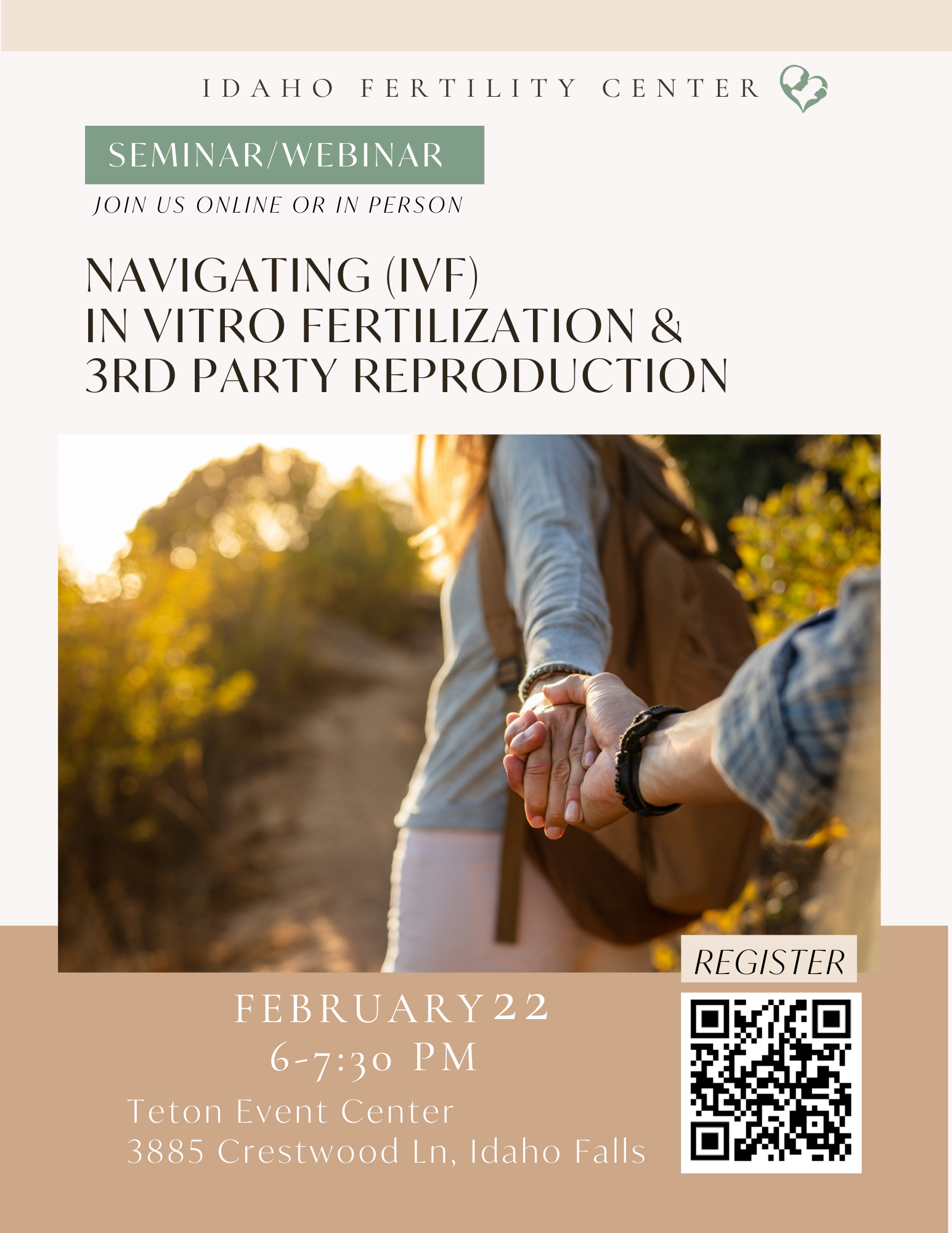
Our infertility specialists at the Idaho Fertility Center in Idaho Falls, Idaho, along with the rest of our dedicated team work hard to make sure you receive the care you deserve as you travel the road to parenthood. We want you to know that you are not alone! Right now we are supporting and promoting National Infertility Awareness Week® (NIAW) which runs from April 19 – 25, 2020.
Our goal is simple; because more than 7 million Americans from all walks of life are struggling with the pain of infertility we want you to know that there is hope. And it begins with removing the stigma and challenging barriers that may face you in your quest to grow your family.
Overcome the Stigma of Infertility with Hope
For those who are dealing with the realities of infertility, you may find that it isn’t just a medical issue, but also involve emotional pain for you and those closest to you. To help overcome this, NIAW helps break down the walls of silence so you and your loved ones can feel comfortable and safe sharing your struggle. Helping your family, friends, co-workers and acquaintances support you in your journey. We want you to know that infertility does not define you and does not need to shut down your dream of becoming a parent.
Thankfully, for every problem of infertility, there is typically a medical solution, thanks to the science of reproductive medicine. Our fertility center offers our patients treatment options including ovulation induction, intrauterine inseminations and in vitro fertilization (IVF). There are surgical restoration options that can also help restore fertility.
It all begins when you reach out for assistance on this journey to help you make your parenthood dreams come true! To this end, Idaho Fertility Center invites you to reach out to us. We are here to give support, empathy and resources to help you overcome any fears and doubts you have. We have seen how sharing the fertility journey with others breaks down those emotional barriers, letting you and others on the same journey connect with and feel heard. Remember, there is always hope on this path!
What is Infertility?
In women, infertility generally means being unable to reach conception after engaging in normal intercourse without birth control for a year (or six months for women who are 35 years or older), and it is actually a common struggle for couples.
The Centers for Disease Control and Prevention, CDC shows that about one in eight (or 6.1 million) American women from 21–44 find themselves struggling to become or stay pregnant. About one-third of these arise because of fertility problems in women and another one-third of arising because of fertility problems in men. The rest occurs because of a mixture of male and female issues.
Infertility in Women
For women, a common denominator of infertility centers around ovulation disorders. PCOS, Polycystic Ovary Syndrome, is one example of an ovulation disorder. Fertilization problems due to tubal insufficiency may prevent the sperm from reaching the egg. This is often the outcome when the tube is blocked because of an infection or previous surgery. Uterine polyps and fibroids can also disrupt implantation inside the uterus.
Infertility in Men
Infertility in men can happen because of low sperm production, an abnormal sperm function or experiencing blockages preventing sperm fertilizing the egg. This can happen if the male is ill, has been injured or has a chronic health condition. Additionally, lifestyle choices like taking anabolic steroids, chronic cocaine or marijuana use, excessive alcohol consumption, habitually smoking tobacco or prolonged emotional stress or depression. All are frequent contributors to male infertility.
Treating Infertility
Two of the most common fertility treatments available today are intrauterine insemination (IUI) and in vitro fertilization (IVF). IUI is done by collecting and inserting healthy sperm directly into a woman’s uterus as she is ovulating. IVF is when eggs are taken from a woman’s ovaries and fertilized by sperm in a lab, allowing them to grow into embryos so the doctor can then insert the embryo(s) into the uterus.
Third party reproduction can create a number of pathways to help those trying to conceive. Donated egg or sperm can add the missing component, and embryo donations as well as gestational carriers (surrogacy) are also viable kinds of third party Assisted Reproductive Technology (ART).
Beat Infertility Summit
Our Idaho Fertility Clinic team is proud that two of the doctors at our sister clinic, Utah Fertility Center, are taking part in the infertility summit coming up during National Infertility Awareness Week April 19-25! Dr. Shawn Gurtcheff will be presenting on “Tracking & Understanding Your Cycle” and Dr. Deirdre Conway will be presenting on “Secondary Infertility” and “Implantation Failure”.
We invite to check out the Beat Infertility Summit for more information.
Please join us for National Infertility Awareness Week April 19-25. We are honored to work with you in your life-changing quest for parenthood. Call our caring team today at (208) 529-2019 in Idaho Falls, Idaho. Together we can remove the stigma of infertility!




